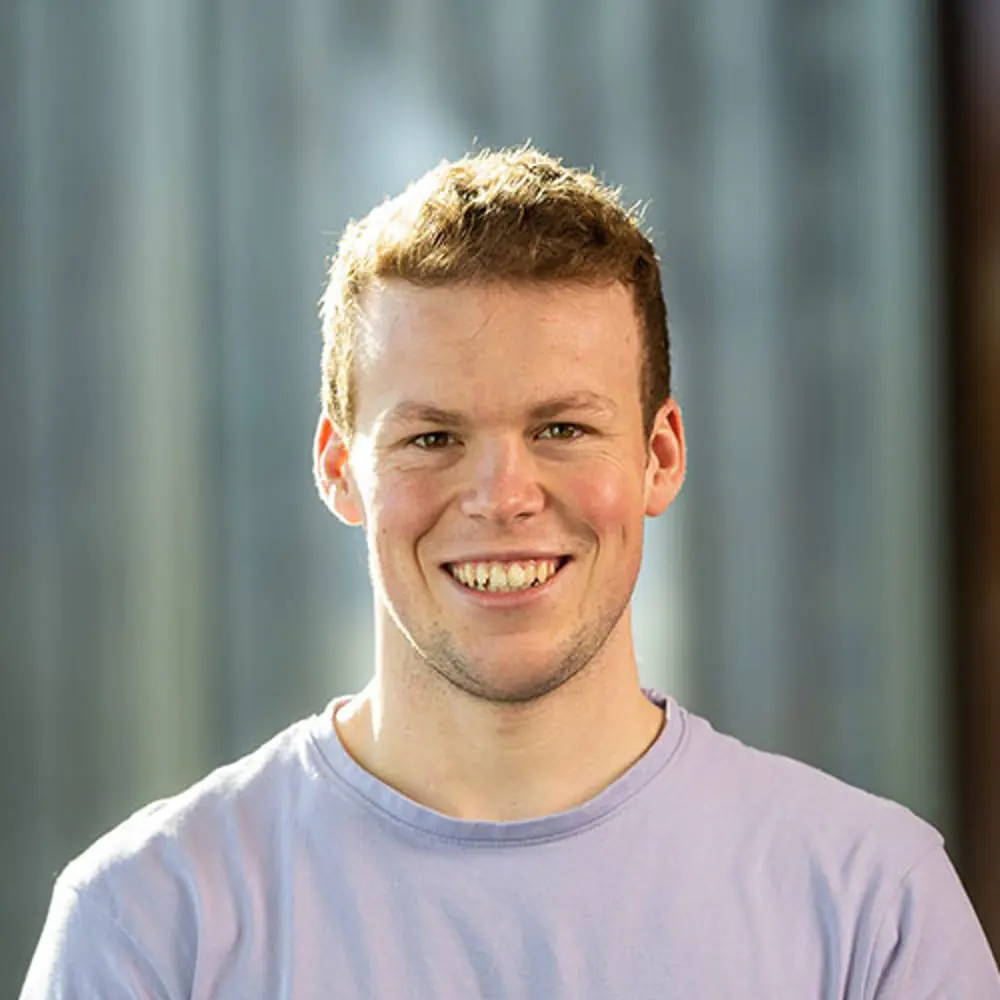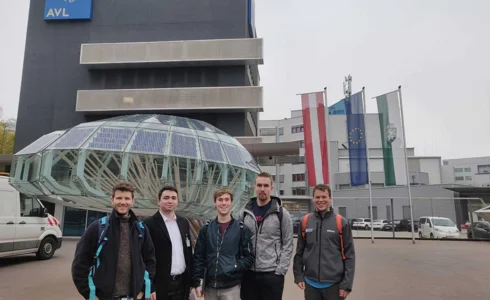
Dr Howard Richards
Theme
Propulsion ElectrificationProject
Investigating the affect DC ripple current has on lithium-ion cellsSupervisor(s)
Dr Chris Vagg, Dr Alex Lunt, Prof Frank MarkenIndustry Partner
AVLHoward's Journey in AAPS: An Alumni Profile
Howard’s journey into engineering began long before university, growing up on a farm where he spent his early years tinkering with engines and machines, developing a natural affinity for solid mechanics. His studies at Imperial College London in Mechanical Engineering further honed his technical expertise, and where he first delved into research on the electrification of agricultural machinery, after which he chose to pursue a PhD in lithium-ion batteries at AAPS CDT. His time at AAPS saw him manufacture his own lithium cells, both for use in long term cycling experiments and for use at a Synchrotron experiment and Diamond Light Source where he performed operando characterization of cells at work.
PhD Focus
Howard’s research investigated the effect of DC ripple current on lithium-ion battery cells in automotive applications, in collaboration with AVL. His work focused on understanding how various ripple frequencies influence battery performance and longevity, using electrochemical theory to explain the observed results. By testing and analyzing the response of lithium-ion cells under real-world conditions, his findings aimed to support electric vehicle (EV) design, particularly in relation to e-machines, inverters, and power electronics.
To achieve this, Howard employed a synchrotron—a type of particle accelerator—to X-ray lithium-ion cells while they are operating under real-world conditions. This innovative approach provides deep insights into how real-world signals impact battery health, ultimately contributing to the development of next-generation EV technologies.
Looking Forward
Howard aspires to become a leading expert in the European battery sector, focusing on manufacturing processes to improve battery longevity and reduce recycling rates. He hopes to gain international experience by working abroad—either in Europe or with Asian battery producers like LG and CATL. His long-term vision is to contribute to the advancement of sustainable energy solutions, ensuring that future EV batteries are more efficient, durable, and environmentally friendly. This is after completing a ski season in Japan and travelling around Asia whilst waiting for graduation.
Reflection on AAPS
Howards time in AAPS has taught him an enormous amount about lithium-ion cells and so much more. He has designed and lead in-situ experiments at a synchrotron, made batteries in a glovebox hundreds of times and won a prize for my presentation at a conference.
However, the thing Howard values most from his time is the support from the community, both from supervisors and other battery researchers in the PhD program to the other countless friends from the vast array of subjects studied within the CDT, being part of this and receiving encouragement and shared enthusiasm played a crucial role in maintaining his motivation and dedication throughout his PhD journey.
